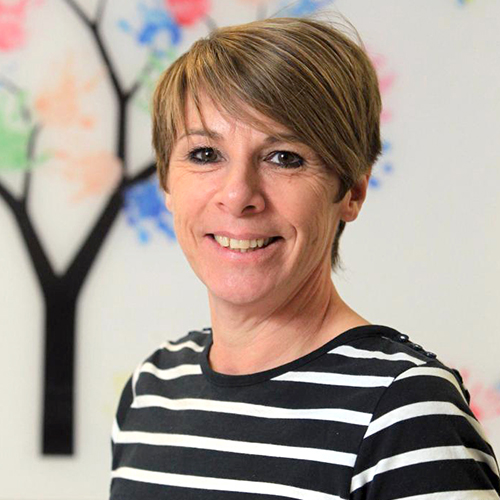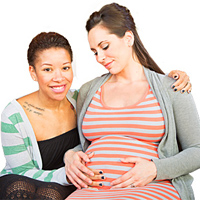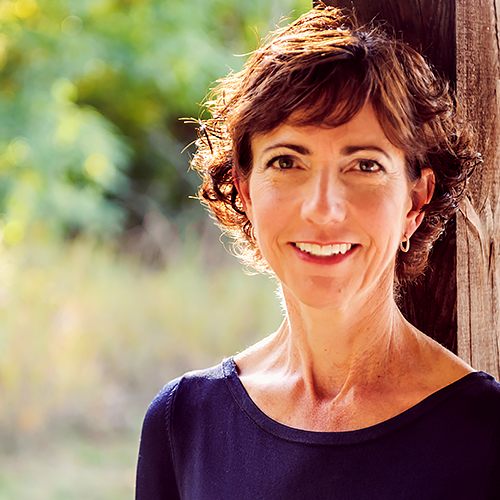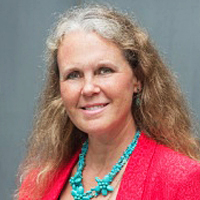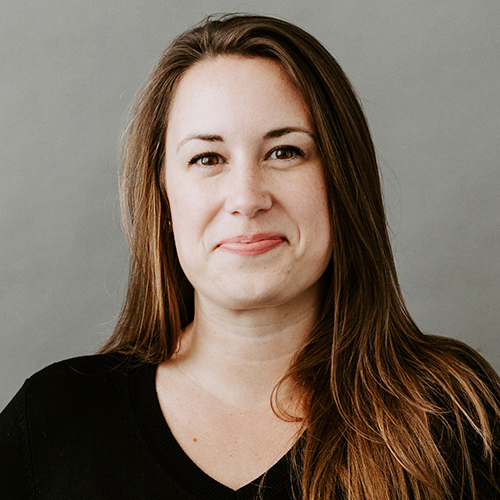 IBCLC Detailed Content Outline: Psychology, Sociology, and Anthropology Focused CERPs - Section V
IBCLC Detailed Content Outline: Psychology, Sociology, and Anthropology Focused CERPs - Section V
Access CERPs on Psychology, Sociology, and Anthropology for the IBCLC Detailed Content Outline recertification requirements. Enjoy convenient on-demand viewing of the latest Psychology, Sociology, and Anthropology focused IBCLC CERPs at your own pace.
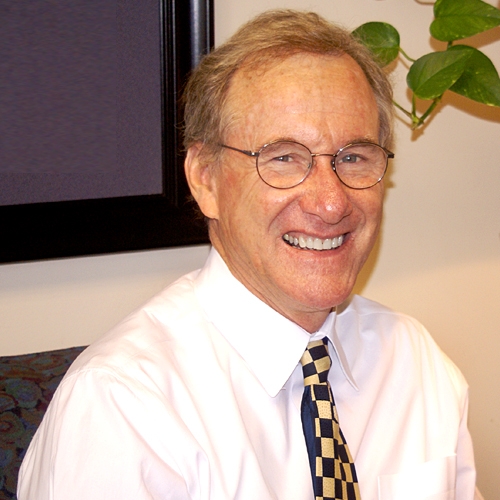
The Return of Breastsleeping: Humankind’s Oldest and Most Successful Sleep and Feeding Arrangement

JAMES MCKENNA (B.A., University of California, Berkeley; M.A., San Diego State University; Ph.D., University of Oregon) Rev. Edmund P. Joyce, C.S.C., Professor of Anthropology
McKenna pioneered the first behavioral and electro-physiological studies documenting differences between mothers and infants sleeping together and apart and has become known worldwide for his work in promoting studies of breast feeding and mother-infant cosleeping. A biological anthropologist, and Director of the Mother-Baby Behavioral Sleep Laboratory McKenna began his career studying the social behavior and development of monkeys and apes with an emphasis on parenting behavior and ecology. He has published over 150 articles and six books including a popular parenting book Sleeping With Your baby: A Parents Guide To Co-sleeping. He has coedited Ancestral Landscapes In Human Evolution, Evolutionary Medicine, and a more recent co-edited volume Evolution and Health: New Perspectives (Oxford University Press. He won the prestigious Shannon Award (with Dr. Sarah Mosko) from the National Institutes of Child Health and Development for his SIDS research and is the nation's foremost authority and spokesperson to the national press on issues pertaining to infant and childhood sleep problems, sleep development, and breastfeeding.
Breastsleeping refers to bedsharing-amongst breastfeeding mothers and infants occurring in the absence of all known independent risk factors.
Given that most breastfeeding mothers bedshare, there is a critical need to develop a new SIDS/SUID discourse, one that employs harm reduction strategies, family- tailored education, evidence-based medicine, and primary advice formulated by breastfeeding and lactation communities, researchers and associations. This new bottom-up, evidence-based discourse first and foremost respects what parents say they need, want, can and are willing to do.
This discourse acknowledges that, in the United States, bedsharing is common and what helps us to understand it is to reference scientific studies (heretofore dismissed by ‘authorities’) on the powerful infantile and parental biological factors that motivate bedsharing, and the realization that sleep-related risks are not co-equal but vary along a significant continuum of relative risks ranging between acceptable (especially where exclusively breastsleeping occurs i.e. where hazardous factors are eliminated) to unacceptable where a variety of well independent “risk factors’ are present.
I argue here for recommendations based on evidence-based medicine rather than the ideologically driven opinions and assumptions of those making the recommendations which are failing after 20 years of attacks on bedsharing and bedsharing families.

View Details / Enroll


Lisa Leppard has worked within a Neonatal Tertiary Unit for 30 years in Clinical, Management, Network and National roles. Her current role, which she has undertaken for 19 years, has been developing the post of Clinical/Family Support Lead Nurse within a tertiary Neonatal Unit, utilising clinical evidence, audit, data and parent/carer feedback. She is responsible for the completion of national databases i.e. MBRRACE & PMRT. Initially this role was part-time but she has developed it, making it into a full-time role and leading a team of 3. The team also includes a clinical psychologist and to gain funding for this role, she worked collaboratively on the business case as part of the Neonatal Parents Mental Health Framework. The team ensures that Family Centred Care remains integral to the unit's ethos & that the parents/carers are given a voice and are well supported. Until recently, she was also the Safeguarding Lead for the Neonatal Unit and completed Level 3 training in Safeguarding. She has extensive experience with audit, working with all levels of the multidisciplinary teams. She was the lead for the BLISS Accreditation of the UHS Neonatal Unit, which was the first unit to be awarded Family Friendly Accreditation within the UK. She was recently part of the BLISS working party to review and update the BLISS audit tool and has also been a Professional BLISS Baby Charter Assessor. She has been the Thames Valley and Wessex Neonatal Network Lead Nurse for Palliative Care for 6 years. To facilitate standardisation of palliative care across the Network, she co-wrote the Palliative Care Pathway adopted and adapted in 2014 by TV&W NNW. She recently facilitated the review and update of the Palliative Care Pathway within the Network. In 2017, she contributed to the review and re-launch of the Together For Short Lives Neonatal Palliative Care Pathway. She is a chapter co-author in the new Palliative Care Text Book for Neonatal Nurses. She co-wrote the chapter on the Nurse’s role in the decision making process. (Neonatal Palliative Care for Nurses. Springer, 2020)
As lead of the Family Support Team, Lisa has developed a link with the Fetal Medicine Team working with families where a life-limiting diagnosis has been made to both support and plan the care of the parents and their baby at delivery and beyond, as well as completing ACP’s and discussing symptom management with parents and medical colleagues. This process includes acting as an advocate for the baby and their families, and always listening to their individual needs. She was part of the team to adapt a Perinatal Palliative Care Pathway for the Wessex Region. She has also worked collaboratively with the Multidisciplinary Paediatric teams to develop pathways to ensure the transition of care of neonates to Paediatrics is seamless & the parents/carers are well supported in the process.
Lisa has been seconded to develop the role of Neonatal Palliative Care Specialist Nurse at Naomi House, a local children’s hospice, raising the profile of hospice care being accessible to neonatal families and staff. She has developed a referral pathway and has visited all the units in the Wessex region, establishing contacts & promoting this as a choice to be offered to parents. She has undertaken the UNICEF Breast Feeding Training course and supported the Breast Feeding Lead Nurse with working towards the Baby Friendly Initiative within her unit. She completed a Counselling Diploma in 2016 and qualified as a Civil Mediator in 2018. Both of these qualifications have enhanced her communication and listening skills when working with families and professionals at all levels. She has a proven track record of managing and defusing challenging situations. She has developed Parental Support Groups and initiated a Father’s Group on the Neonatal Unit.
End of life care in the NICU is challenging for parents and staff alike. Nurses are a vital part of the NICU team and during end of life care they facilitate support and information to parents as well as colleagues and provide regular assessments of the baby. Accurate and consistent information is vital for the parents to feel empowered to engage fully. This part of a neonatal nurse's role can be emotionally challenging, and this is an important point to highlight. This presentation aims to evoke discussion around the nurses role in the decision making process when moving to end of life care of a baby and includes measures to ensure that staff feel involved and supported throughout the process.
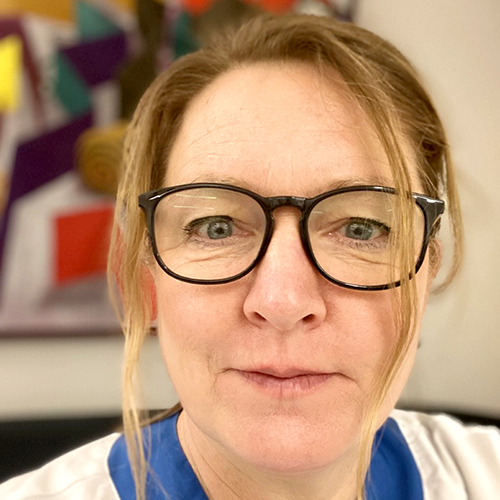
The Swedish Experience of Parental Involvement and Nurturing Care of Extremely Preterm Infants in the NICU

Became an RN, 1994. PhD in medical sciences Uppsala University, Sweden, 2012 (The name of the thesis: Kangaroo Mother Care - Parents’ experiences and patterns of application in two Swedish neonatal intensive care units).
Currently one of two Head nurses at the NICU in Uppsala, Sweden and are responsible for nursing care research, education and nursing care improvement. Also an associate professor at Uppsala University. Is an active researcher within research area around neonatal care and has about 30 scientific publications in peer-reviewed journals.
This presentation will focus on the nurturing care of extremely preterm infants and their parents. Parent-infant separation is commonplace in NICUs and even more if the infant is born extremely preterm. Parent’s presence could be restricted by the rules and routines in the neonatal intensive care environment and skin-to-skin contact is not always possible due to the infant’s condition. Early and extensive contact between the infant and the parents enables the parents to get to know their infant and to feel and act like parents. At the NICU in Uppsala, Sweden, our experience is that parents, even those who have an extremely preterm infant want to be present and to stay close, 24/7, to their infant during the infants NICU stay. The aim of this presentation is to report clinical experiences from the NICU in Uppsala about how the NICU environment and NICU staff can facilitate or hinder parental presence, parental participation, and skin-to-skin contact when the infant is born extremely preterm.
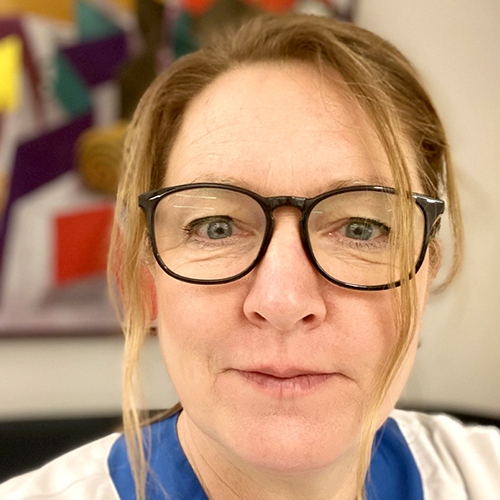
View Details / Enroll

The Tipping Point in Childbirth Education: The Consequences of Ignorance

Penny Simkin, PT, is a physical therapist who has specialized in childbirth education and labor support since 1968. She estimates she has prepared over 13,000 women, couples, and siblings for childbirth. She has assisted hundreds of women and couples through childbirth as a doula. She is author or co-author of books for both parents and professionals, including “The Labor Progress Handbook;” “Pregnancy, Childbirth, and the Newborn: The Complete Guide;” “When Survivors Give Birth: Understanding and Healing the Effects of Early Sexual Abuse on Childbearing Women;” “The Birth Partner: A Complete Guide to Childbirth for Dads, Doulas, and All Other Labor Companions,” She has developed teaching materials for birth classes and produced several videos for educators, doulas, and families , the latest of which is for siblings-to-be, “There’s a Baby.” She is co-founder of DONA International (formerly Doulas of North America) and PATTCh (Prevention and Treatment of Traumatic Childbirth).
Currently, she serves on the editorial board of the journal, Birth: Issues in Perinatal Care, and serves on the senior faculty of the Simkin Center for Allied Birth Vocations at Bastyr University, which was named in her honor.
Today, her practice consists of childbirth education, birth counseling, and labor support, combined with a busy schedule of conferences and workshops.
Penny and her husband, Peter, have four grown children and eight grandchildren from 11 to 28 years of age, two grandchildren-in-laws, and a pug, Lola.
Penny will explore trends in childbirth education over the past quarter century when childbirth education became marginalized with fewer than half of first time north American childbearing families taking any childbirth classes. Reasons and implications of a poorly informed childbearing public will be discussed. Penny will discuss her perceptions of what is missing in childbirth education today, and will suggest some solutions. She will review knowledge essential for families to make choices in maternity care. Penny calls for more skill building in classes relating to comfort measures and improving labor progress.
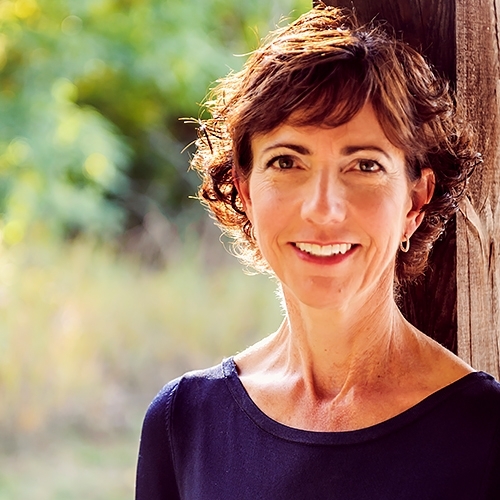

Dr. Sharon Unger comes from the East Coast of Canada and is a neonatologist at Sinai Health System in Toronto, Canada. She is a co-primary investigator for the Canadian Institutes of Health Research funded OptiMoM and MaxiMoM programs of research as well as the medical director for the Rogers Hixon Ontario Human Milk Bank. Her research interests are primarily in the use of human milk for the high risk neonate and its long term impact.
Mother’s milk is the unequalled nutritional source for the preterm or medically fragile neonate. Beyond its nutritional impact, it contains a myriad of bioactive molecules that are of particular health importance for the sick neonate. A majority of mothers who are pump dependent with an infant in a neonatal intensive care unit have an incomplete supply of their own milk. In this instance, human donor milk is an important supplement to have available while the mother is supported to increase her own milk supply. This lecture will focus on various aspects of the use of human donor milk including a review of the differences between mother’s milk and donor milk and the current methodologies used for processing donor milk. Recommended clinical guidelines will be discussed that are based on the evidence for short and long term health outcomes following the use of donor milk in the neonatal period. Future considerations will be explored including ethical issues with respect to donor milk use.

View Details / Enroll

Thought Patterns, Relationship Patterns, and Postpartum Depression

Dr. Kimberly Thompson is a licensed psychologist in Texas. She works with people across the life span, but the majority of her clinical work centers around the special concerns of women and children.
Dr. Thompson is a published researcher, author, and teacher. She teaches in the Infant & Early Childhood Development Ph.D. program, Fielding Graduate University, and has recently authored “Perfect Mothers Get Depressed,” a book on the cognitive and relational roots of postpartum depression.
Dr. Thompson has been married to Dr. Charles D. Thompson, an obstetrician-gynecologist, since 1985. The two Drs. Thompson have four children and one grandchild.
We will explore how dysfunctional thought patterns and habitual ways of being in relationships, based on life experiences, contribute to a woman’s approach to motherhood and the development of postpartum depression.

View Details / Enroll
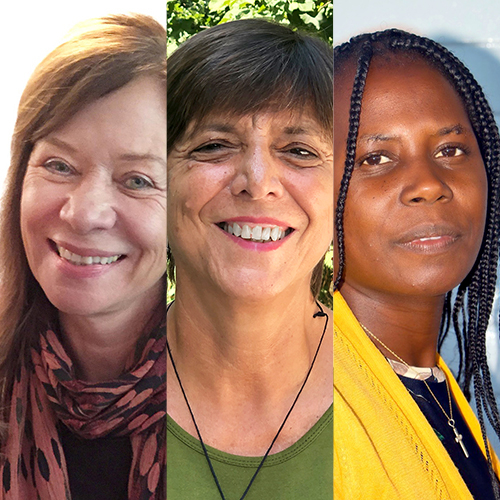

Renowned expert Elizabeth Davis has been a midwife, reproductive health care specialist, educator and consultant for over 40 years. She is internationally active in promoting physiologic, undisturbed birth and is widely sought after for her expertise in midwifery education, legislation, and organizational development. She is the author six widely translated books on birth, sexuality, and female psychology, including “Orgasmic Birth: Your Guide to a Safe, Satisfying, and Pleasurable Birth Experience,” “The Rhythms of Women’s Desire: How Female Sexuality Unfolds at Every Stage of Life,” and the textbook “Heart & Hands: A Midwife’s Guide to Pregnancy and Birth,” now in an updated 2019 5th edition (see https://elizabethdavis.com for details). She served as Regional Representative and Education Committee Chair for the Midwives Alliance of North America (MANA), as President of Midwifery Education Accreditation Council (MEAC), and as midwife consultant to the State of California’s Alternative Birthing Methods Study. She is the recipient of the California Association of Midwives’ Brazen Woman Award, and Midwifery Today’s Lifetime Achievement Award. She is Co-founder of the MEAC accredited National Midwifery Institute, and author/instructor of Heart & Hands Coursework.
Sarah Mlambo is a registered Nurse and Midwife who has international and intercultural nursing and midwifery experience in both the public and private sector. She has several qualifications from Zimbabwe, Namibia and South Africa. Sarah Mlambo is currently finalising her PhD where she focusses on a model for midwives in the facilitation of childbirth-choices. She is a published author and Midwifery educator in Namibia.
Loredana Zordan is an Independent midwife, freelance midwifery teacher. She completed a BsC in Midwifery and a Master Degree at King's College and City University of London. She has worked as a community midwife and a in a Birth center in London at University college and at St. Thomas hospital. She is a certified acupuncturist specialized in obstetric acupuncture.
She is teaching nationally and internationally workshop for midwives on the use of acupressure for labour preparation, induction of labour and for pain relief.
She is using acupressure whiting the clinical practice, providing antenatal classes and facilitating home birth. She strongly advocates the use of acupressure internationally as it will allow midwives to expand their role, becoming more complete and independent practitioner. Acupressure being drug –free and therefore having not harmful teratogenic effect, provides a much safer and satisfying childbirth experience as well as facilitating a more natural and less medicalized childbirth.
Prolonged labour is a common cause of birth interventions and can be a challenging situation for the birthing parent, family and care providers. This panel brings together midwives from different parts of the world to share their unique perspectives on the physiological and psychological causes of prolonged labour, interventions that may help and the possible implications for both the birthing parent and the fetus/newborn.
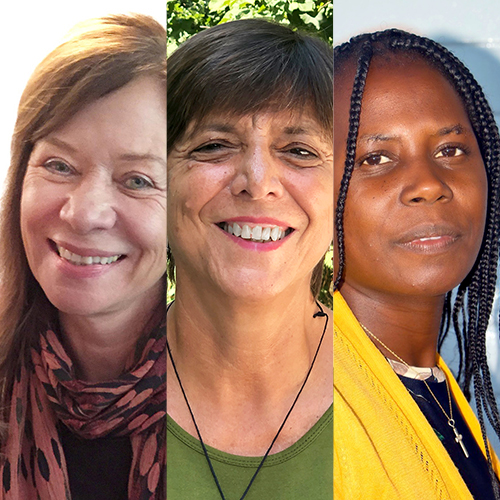
View Details / Enroll
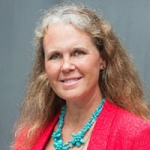

Mickey Sperlich, an assistant professor with the UBSSW, is an experienced midwife and researcher who studies the effects of trauma and mental health challenges on women’s childbearing and postpartum experiences and outcomes. She became interested in research in order to better understand the needs of her midwifery clients who were trauma survivors. Her first research project culminated in the book “Survivor Moms: Women’s Stories of Birthing, Mothering and Healing after Sexual Abuse,” which was named the 2008 Book of the Year by the America College of Nurse Midwives. Sperlich has taken part in several trauma-focused perinatal studies and is co-author of a psychosocial intervention for pregnant survivors of abuse, the “Survivor Moms’ Companion.” She completed her PhD with a dual title in Social Work and Infant Mental Health at Wayne State University in Detroit, Michigan, in 2014. Sperlich says, “I am committed to developing trans-disciplinary approaches to understanding and addressing the sequelae of sexual violence and other trauma, particularly for childbearing women. I am actively involved in developing and evaluating interventions which address issues experienced by survivors of trauma and which are directed at interrupting intergenerational cycles of violence and psychiatric vulnerability.”
This presentation will apply a trauma-informed lens to understanding how cycles of violence and psychiatric vulnerability affect women and their families during the childbearing year. Recent research shows how exposure to sexual trauma and other forms of child maltreatment and individuals’ reactions to such exposures in the form of posttraumatic stress and depression in particular imparts risk for adverse outcomes for mothers and babies. Recent advances in the field of epigenetics and neurobiology also show how enduring the effects of trauma can be. Fortunately, evidence is also emerging which suggests how trauma-informed and trauma-specific interventions can disrupt these cycles and ameliorate the effects of trauma. This session will overview current recommendations and best practices for adopting trauma-informed principles for any human service organization, and will specify how these recommendations can be applied to perinatal settings.
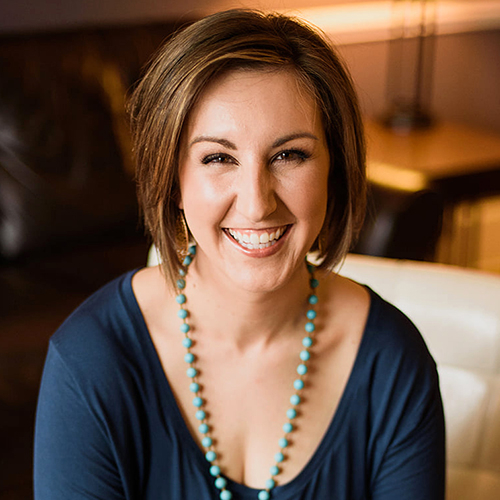
Trauma-Informed Care: A Guide to Patient Advocacy for Trauma Survivors

Mandy Irby, pronouns are she/her, is a board certified labor nurse with 13 years of experience supporting survivors of assault and trauma through pregnancy, birth planning, and at their bedside during childbirth and pregnancy loss. After experiencing her own birth trauma, she quickly learned that the birth care system is NOT centered on human rights, patient choice, and the individual experience. In 2020, Mandy made education a full-time career. She now teaches and supports parents and nurses how to better center voice, choice, and physiology in birth. It's Mandy’s mission to change birth culture so that it's parent-centered, trauma-informed, and safe for all.
Mandy enjoys teaching in-person, in whole-team learning: Peanut Ball, Labor Support Skills and Trauma-Informed Care At the Bedside workshops. She also supports local parents with small-group Spinning Babies® Parent Classes when in-person learning is safest. Mandy is also an international educator through her online, on-demand childbirth ed classes and she supports anxious parents-to-be with virtual, one-on-one trauma-informed birth strategy sessions. She’s the co-founder of Fearless Birth, Delivered, founder and owner of The Birth Nurse®, and a proud co-creator of the BRAND NEW Trauma-Informed Birth Nurse Program. As a creative educator, Mandy is also the co-author of an Amazon best-seller, Baby Got VBAC, and reaches millions of viewers each month through her engaging, tongue-in-cheek social media platforms.
When she’s not working from home, Mandy might be found at any local plant nursery adding to her, some may say, out-of-control house plant collection. She’s a serial craft starter and non-finisher, loves walking her doodle puppy, and playing in the creek with her 2 kids.
Topic: Trauma-Informed Care: A Guide to Patient Advocacy for Trauma Survivors - [View Abstract]
Thanks to the brave whistle blowers who have shared their stories, the community at large has become increasingly aware of the prevalence of sexual assault and trauma. Healthcare professionals report a lack of education specifically related to the care of assault survivors and an eagerness to learn trauma-informed care practices. A shift in care practice is nearly impossible, however, if healthcare professionals, especially nurses, hold a feeling of perceived powerlessness in their professional role. In this session, we’ll review patient advocacy definitions as they relate to a patient-centered standard of care. Participants will also learn how to provide compassionate, trauma-sensitive care to survivors of trauma while preventing further harm. Instead of feeling powerless, participants can begin to develop awareness of the unique superpowers that perinatal healthcare providers possess and receive a foundational understanding for how to be strong, confident patient advocates.
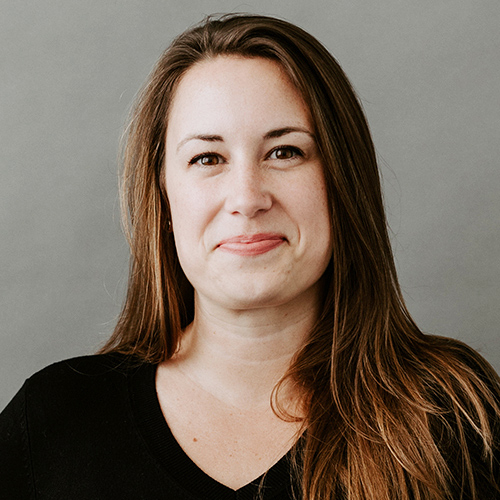

Stephanie Tillman (she/her) is a midwife at the University of Illinois at Chicago. She completed her undergraduate degree in Global Health and Medical Anthropology at the University of Michigan, and her graduate degree in Midwifery at Yale University. She is on the Boards of Directors of Nurses for Sexual and Reproductive Health (NSRH) and the Midwest Access Project (MAP), is an Advisory Committee Member of the Queer and Transgender Midwives Association (QTMA), and is a member of the ACNM Ethics Committee. She is currently a Clinical Medical Ethics Fellow at the University of Chicago's MacLean Center, where she is focusing on consent in intimate exams. Stephanie blogs under the name Feminist Midwife, and through that online platform, academic and public writing, and professional speaking engagements, seeks to interact with providers and consumers in conversations about consent in health provision, queer care, sex positivity, nurses and advanced practice clinicians in abortion care, and trauma-informed frameworks. Find her on social media @FeministMidwife.
The framework of trauma-informed care first emerged in the 1990s, proposed by sexual assault survivors as a structure for safe engagement with healthcare institutions and providers. Decades later, this approach to intimate care continues to exist more in theory than in standard practice. Exceptionalized circumstances in obstetrics and gynecology, such as the first pelvic exam, care for patients with a known history of sexual assault, or care for queer communities, often embody the ideals of trauma-informed care that could easily be extrapolated to all care interactions. The importance of intentionality in intimate care, including consent processes as well as physical touch, is all the more critical given publicized cases of providers physically and sexually assaulting patients. Further, as COVID-19 continues to affect individuals and communities worldwide, trauma now touches every person’s life in new and challenging ways. This holds the opportunity to facilitate a connected empathy between patients and providers, and thus a new possibility to integrate trauma-informed care into practice. This presentation will review the framework of trauma-informed care, detail best practices for pelvic care, discuss the impact of COVID-19 on intimate examinations, and challenge providers to modify current practices in order to create safe environments for empowering healthcare experiences.

View Details / Enroll





